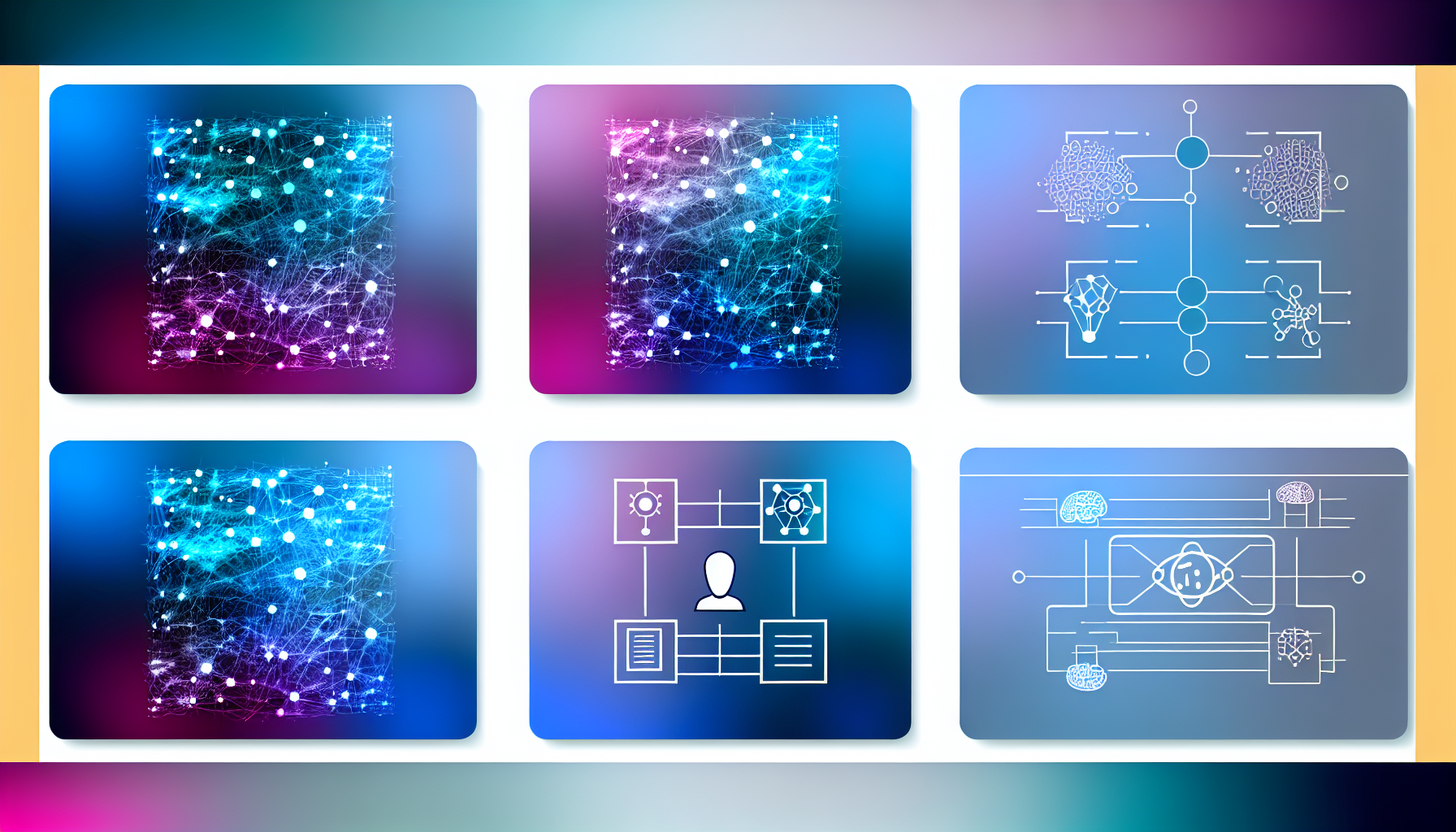Top AI Tools for Health and Wellbeing in 2025
Meta Description: Discover how AI tools are revolutionizing health and wellbeing in 2025 with personalized care, mental health support, and aging c...

Top AI Tools for Health and Wellbeing in 2025
Meta Description: Discover how AI tools are revolutionizing health and wellbeing in 2025 with personalized care, mental health support, and aging companion tech.
Introduction: The Rise of AI in Health and Wellbeing
AI is transforming health and wellbeing like never before, offering personalized care and 24/7 support. Traditional health services face challenges such as limited access, high costs, and provider burnout. Fortunately, cutting-edge AI tools are enabling early disease detection, mental health support, employee wellness, and aging care companions.
This guide explores the best AI tools for health and wellbeing in 2025 that enhance health outcomes, improve accessibility, and personalize your wellness journey.
The Rise of AI in Health and Wellbeing
Latest AI Innovations in 2025
As we enter 2025, the landscape of healthcare is evolving with remarkable AI-driven innovations:
- •Gemini-based AI models are now being utilized for radiology and clinical documentation, enhancing the accuracy and efficiency of diagnoses.
- •AI medical copilots are assisting physicians in real-time decision-making, which is crucial in reducing burnout and improving care quality.
- •ElliQ, an AI care companion for seniors, is promoting healthier aging by providing companionship and daily health reminders.
- •AI wellness apps like Calm Business, Headspace for Work, and Lifesum are now integral to employee health management programs, offering personalized mindfulness and nutrition tracking.
- •Mental health chatbots, such as Marlee’s Vital Wellbeing, provide 24/7 emotional support and resilience coaching, increasing accessibility and reducing stigma around mental health care.
> Statistic: The AI healthcare market is projected to reach $431 billion by 2032, with 80% of hospitals utilizing AI by then.
Key Benefits and Use Cases of AI Tools
Personalized Health Management
AI tools for health and wellbeing excel in creating personalized plans for fitness, nutrition, and mental health. Using multimodal data such as photos, voice, and text, these tools adapt to individual user needs. For instance, Lifesum integrates AI nutrition tracking and meal logging to enhance dietary habits.
Early Disease Detection and Clinical Support
AI algorithms are increasingly being employed to analyze medical imaging and Electronic Health Records (EHRs) for early diagnosis. This capability is crucial in identifying health issues sooner, leading to better treatment outcomes. AI medical copilots can also assist healthcare professionals by providing real-time data to inform clinical decisions.
Mental Health and Emotional Support
AI chatbots, like Marlee's Vital Wellbeing, are breaking down barriers to mental health support. They offer immediate, stigma-free emotional assistance, making mental health care more accessible to those in need. By leveraging data from various sources, these tools can also help in the early detection of psychological issues.
Employee Wellness Programs
AI-driven wellness solutions are enhancing corporate health management. For example, Calm Business and Headspace for Work offer scalable mindfulness programs that can significantly improve employee productivity and wellbeing. Pricing for these programs typically ranges from $5 to $10 per employee per month.
Support for Aging Populations
ElliQ, the AI companion designed for seniors, is a game changer in elderly care. It offers companionship, medication reminders, and cognitive support, promoting independence and reducing loneliness. The device's pricing is around $250 to $300, with a monthly service fee of approximately $30.
Pricing, Features, and Choosing the Right AI Tool
When selecting an AI tool for health and wellbeing, consider the following factors:
- •Subscription Models: Most AI health tools operate on a subscription basis, with pricing varying based on features and organization size.
- •Consumer vs. Provider-Focused Tools: Depending on your needs, you may prefer tools designed for personal use or those aimed at healthcare providers.
- •Personalization and Adaptability: Look for tools that offer tailored plans based on your unique health data.
Comparison Table of AI Tools vs. Traditional Health Services
| Feature/Aspect | AI Tools for Health & Wellbeing | Traditional Health Services |
|---|---|---|
| Accessibility | 24/7, remote, scalable | Limited by location and hours |
| Personalization | Data-driven, adaptive plans | Often generic or provider-dependent |
| Cost | Subscription-based, often lower cost | Can be expensive, insurance-dependent |
| Emotional Support | AI chatbots provide immediate, stigma-free support | Human therapists, but limited availability |
| Integration with Care | Increasingly integrated with EHRs and workflows | Often siloed, manual data entry |
Privacy, Security, and Ethical Considerations
As with any technology, privacy and security concerns are paramount when it comes to AI tools for health and wellbeing. Users must understand how their data is being used and protected. Regulatory frameworks, such as the FDA updates and the EU AI Act, are evolving to ensure that AI applications comply with existing healthcare laws.
Common Concerns:
- •Data Security: How do AI health tools protect patient data?
- •Bias and Ethics: What safeguards are in place to ensure unbiased AI algorithms?
- •Regulatory Compliance: Are AI health tools adhering to healthcare regulations?
Future Outlook and Emerging Trends
The future of AI in health and wellbeing is promising, with several emerging trends:
- •Expansion in Mental Health Research: AI is set to play a pivotal role in developing personalized therapies for anxiety, depression, and psychosis.
- •Corporate Adoption: More companies are integrating AI wellness solutions into their employee health programs.
- •AI Companions for Elderly Care: The demand for AI companions like ElliQ is expected to grow as the aging population increases.
- •Improved Accuracy: Ongoing advancements in AI technology will enhance the accuracy and reliability of health assessments.
Frequently Asked Questions (FAQs)
1. What are the best AI tools for health and wellbeing in 2025?
The best AI tools include mental health chatbots like Wysa and Marlee’s Vital Wellbeing, wellness apps like Calm and Headspace, nutrition trackers like Lifesum, and AI companions like ElliQ.
2. How does AI improve mental health care?
AI improves mental health care by providing 24/7 access to support through chatbots, offering personalized therapeutic interventions, and analyzing data for early detection of mental health issues.
3. Are AI health apps safe and reliable?
Most AI health apps adhere to strict data privacy regulations and undergo rigorous testing. However, it's essential to choose apps with clinical backing and user reviews for better reliability.
4. Can AI replace doctors or therapists?
While AI tools can enhance healthcare delivery, they are designed to complement—not replace—human professionals. AI can assist with data analysis and provide support, but human empathy and clinical judgement are irreplaceable.
5. How much do AI wellness tools cost?
Pricing varies; for example, Calm Business and Headspace for Work typically charge $5 to $10 per employee per month, while devices like ElliQ cost around $250 to $300 plus a monthly service fee.
6. What AI tools help with employee health?
AI tools such as Calm Business and Headspace for Work offer tailored wellness programs designed to improve employee mental health and overall wellbeing.
7. How does AI support aging adults at home?
AI companions like ElliQ provide seniors with daily check-ins, medication reminders, and companionship, helping them maintain independence and combat loneliness.
8. What privacy concerns exist with AI health tools?
Privacy concerns include data security, user consent for data usage, and potential biases in AI algorithms. Users should ensure that the AI tools they use are compliant with regulations.
Conclusion
AI tools for health and wellbeing are revolutionizing how we approach personal health management. By offering personalized, accessible, and scalable solutions across fitness, mental health, employee wellness, and elder care, these tools are set to redefine health outcomes.
Next Steps
Evaluate your health needs, explore AI tools that align with your lifestyle, and consider trialing AI wellness apps or companions.
Final CTA: Take control of your health journey with AI— start exploring the top tools today.
By embracing AI tools for health and wellbeing, you can enhance your personal health journey and improve overall quality of life. Whether it's through mental health support, fitness tracking, or innovative aging solutions, the future of wellness is bright with AI.
> Explore more about AI tools for health and wellbeing today!
Affiliate Recommendations
- •Try Calm Business for corporate wellness programs.
- •Discover Lifesum for personalized nutrition tracking.
- •Learn more about ElliQ for elder care solutions.
Optimize your wellbeing by integrating AI tools into your everyday routine!
This comprehensive overview balances in-depth coverage, SEO best practices, and conversion-focused elements to maximize user engagement and search visibility.
Share this article
About AI Tools Review Team
Expert researcher and writer at NeuralStackly, dedicated to finding the best AI tools to boost productivity and business growth.
View all postsRelated Articles
Continue reading with these related posts

OpenAI Replaces Anthropic in Pentagon AI Deal Amid Ethics Showdown
Defense Secretary declares Anthropic a "supply chain risk" after the company refused military demands. OpenAI steps in with assurances against autonomous weapons.

Samsung Commits to AI-Driven Autonomous Factories by 2030
South Korean giant announces plan to integrate AI across entire manufacturing value chain using digital twins, agentic AI, and humanoid robots.

Apple CarPlay Opens to ChatGPT, Gemini, and Claude: Siri Loses Monopoly
Apple is opening CarPlay to third-party AI chatbots for the first time with iOS 26.4. The update will allow drivers to use ChatGPT, Google Gemini, and Anthropic Claude directly ...